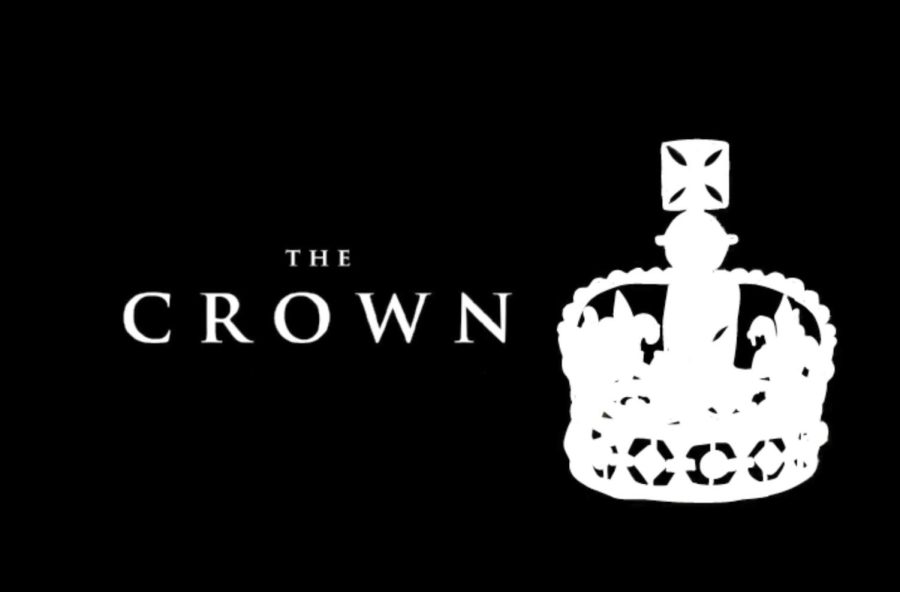Reel thoughts: ‘The Crown’ season five highlights the monarchy’s mirroring of common life
“The Crown” Season 5 exposes marital failure and a faltering monarchy.
November 21, 2022
Warning: This article contains spoilers.
The latest season of “The Crown” dropped just months after Queen Elizabeth II’s death and a new king of England taking the throne. Love and its discontents litter season five, along with emblems of ‘90s digital modernism. Satellite television and phone tapping comes to the forefront with Princess Diana’s groundbreaking 1995 BBC interview, exposing her husband King Charles III’s affair and her mistreatment by the monarchy — one at the brink of collapse in an ever-evolving world.
Allusions to the royals’ irrelevancy surfaces in the first episode, “Queen Victoria Syndrome,” when former Prime Minister John Major (Jonny Lee Miller) describes the senior royals as “dangerously deluded and out of touch.”
While the entire series highlights how elitist, monarchical systems grant those at the top immense social separation from commoners, it seems the royal family’s inaptitude for strong, successful marriages aligns with the majority of the country. As of 2021, the average divorce rate in the United Kingdom sits at 42%.
The Crown’s producers connect these dots in the season’s penultimate episode, “Couple 31,” which showcases everyday couples airing their grievances in divorce court. These broken hearts and faces are precursors to a final talk between Charles (Dominic West) and Diana (Elizabeth Debicki). Just like a myriad of British common-folk, they symbolically remove their wedding rings.
Charles and Diana aren’t the only two royals undergoing divorce in season 5. Almost every child of Elizabeth (Imelda Staunton) and Philip (Jonathan Pryce) faces a failed marriage, with even the Queen clashing with her husband’s more curious and restless personality in episode six, “Ipatiev House.”
But the one hopeful royal love story lies between Princess Margaret (Lelsey Manville) and her long lost love, Peter Townsend (Timothy Dalton). Avid watchers of “The Crown” may remember the two’s vivacious, passionate and dangerous relationship in season one, ending in the Queen’s banning of their marriage on account of Townsend’s status as a divorcee.
After Townsend is diagnosed with cancer in the ‘90s, he visits Margaret one last time, saying “I wanted to know if our love, in the context of a whole life, had been a fleeting one or a lasting one,” before the two share a passionate kiss.
Known for being strong-willed and endearingly raunchy, Margaret has consistently sacrificed her privileges — even those involving choice of spouse — for her elder sister, the Queen. But it seems her love for Townsend throughout the years held stronger than any other royal relationship in the series.
The 2016 debut season of “The Crown” featured 1950s Elizabeth (Claire Foy) and Philip (Matt Smith). While a season six is expected, Producer Suzanne Mackie has stated the series will end thereafter due to its proximity to current day.
As for the question all have been asking — whether this is the season where Diana dies — viewers can rest assured. Though we see her downtrodden and reeling from the systemic unfairness the royals have regarded her with, Diana is alive in the last episode, which takes place the summer before her fatal car accident.
Producers end the season with alternating shots between Diana and the Queen, staring at their reflections. The older wonders how her relevance in political life faded along with her familial structure, while Diana sits alone and pensive, contemplating a decade and half of mistreatment and ignorance from her majesty.
Email: [email protected]
Twitter: @swarthout_iris
Related Stories:
— Reel Thoughts: ‘Andor’ is a fantastic expansion to the galaxy far, far away
— Reel Thoughts: ‘Star Trek: Lower Decks’ offers nerdy jokes and heartfelt stories


